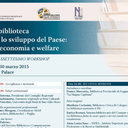Lack of association between prodromes nausea and vomiting, and specific electrocardiographic patterns of acute myocardial infarction.
Mots clés
Abstrait
We conducted an observational study on 164 patients consecutively admitted to our coronary care unit in order to evaluate the predictive role of cardiac prodromes nausea and vomiting, in distinguishing a particular electrocardiographic pattern (Q wave versus non-Q wave and localisation) of an acute myocardial infarction. Patients with the prodromes made up 47.0% of all Q wave myocardial infarction and 59.4% in those without Q wave myocardial infarction. Furthermore, patients had nausea and vomiting in 25.0% of all Q wave myocardial infarction and in 31.2% of all non-Q wave infarction. No significant differences were found in the patients who experienced nausea and vomiting in the localisation (anterior versus inferior) of myocardial infarction. Our findings indicate that the cardiac prodromes of nausea and vomiting do not play any particular role in predicting a specific electrocardiographic pattern of acute myocardial infarction.


